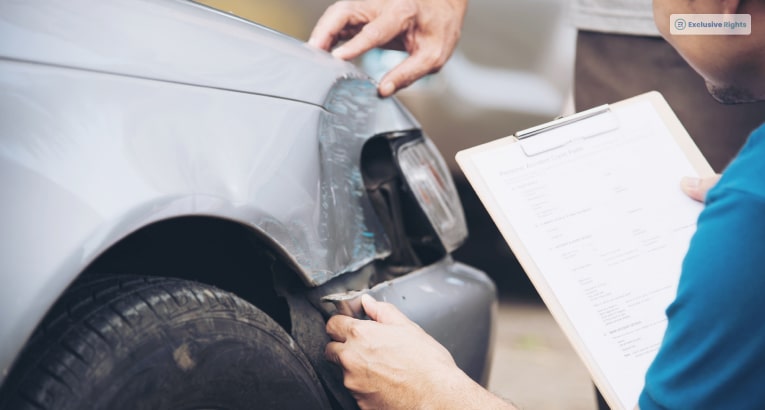
Table Of Contents
- Texas Crash Report: Getting You The Support of Law Enforcement
- Finding the Crash Report
- Meet CRIS - Your Report Genie
- Old-School Charm
- Money Matters
- Sharing Vital Info
- Why Should You File A Texas Crash Report?
- Police Investigation
- Insurance Purposes
- Claims Settlement
- Determining Fault
- Legal Proceedings
- Statistical Data
- Traffic Safety Improvements
- Driver Behavior Assessment
- Compliance with the Law
- Finally! Texas State Laws: Texas Crash Reports
- Reporting Requirement
- Timeframe for Filing
- Police Involvement
- Personal Responsibility
- Penalties for Non-Compliance
- Reporting Method
- Report Content
- Confidentiality
- Open Records Act
- Exceptions for Crashes on Private Property
- Additional Reports for Fatalities
How To File A Texas Crash Report? Read On!
We understand that being involved in a car crash can be an emotional and traumatic experience. In this little blog piece, we will provide you with a thorough guide on how to file for a Texas crash report.
Texas Crash Report: Getting You The Support of Law Enforcement

In times of distress, you are not alone. The moment a car crash occurs, take a deep breath and dial the all-important number: 911. Doing so will get the very needful assistance of the law enforcement body near you. These dedicated professionals will respond swiftly. They will provide aid, investigate the scene, and note down a comprehensive crash report. This will serve as a crucial document for all parties involved.
Finding the Crash Report
Getting that crash report might seem challenging, but don’t worry! We’re here to help. You can get it from two places: the Texas Department of Transportation (TxDOT) or the local police that handled your case.
Meet CRIS – Your Report Genie
Imagine a helper for Texas crash reports! That’s CRIS (Crash Reporting and Analysis for Safer Highways). It’s a smart system that makes things easy. Be sure to visit https://cris.dot.state.tx.us, and you can ask for the report online.
Old-School Charm
Some people like old ways, and we respect that! You can go to the police station or TxDOT office in person. They’ll be happy to help you get the crash report, like in the good old days.
Money Matters
Before you go, remember there might be a small fee for the report. It’s a little token for their help, so bring some cash in case.
Sharing Vital Info
To unlock your crash report, give them the important details. Give them details like when it happened, who was involved, where it happened, and if you have a report number. These details will lead you to the Texas crash report you want.
Why Should You File A Texas Crash Report?

The report serves as an official document that records the details of the car crash. It includes important information such as the accident’s date, time, and location.
Police Investigation
When you file a texas crash report, it triggers a police investigation. The police will examine the scene, talk to witnesses, and gather evidence to determine what happened and who may be at fault.
Insurance Purposes
Insurance companies rely on the crash report to assess the damages and injuries sustained during the accident. It helps them determine the appropriate coverage and compensation for the involved parties.
Claims Settlement
If you need to make an insurance claim for the damages to your vehicle or injuries, the crash report provides the necessary information for the claims process. It helps expedite the settlement and ensures that you get the rightful compensation.
Determining Fault
The crash report helps establish liability and determine who is responsible for the accident. This information is crucial in situations where legal action is taken or when negotiating with insurance companies.
Legal Proceedings

A car crash may sometimes lead to legal disputes or lawsuits. The Texas crash report acts as valuable evidence in court to support your case and present a clear picture of what happened.
Statistical Data
The data collected from crash reports are used for statistical analysis by government agencies and researchers. This information helps identify trends and areas where traffic safety improvements are needed.
Traffic Safety Improvements
By analyzing crash reports, transportation authorities can identify high-risk areas and implement measures to improve road safety, such as adding traffic signals or improving road design.
Driver Behavior Assessment
The crash report history can help authorities assess a driver’s overall safety record in cases of repeated offenses or suspicious driving behavior.
Compliance with the Law
In Texas, it’s a legal requirement to file a Texas crash report for accidents resulting in injury, death, or property damage above a certain threshold.
Finally! Texas State Laws: Texas Crash Reports

Texas state laws regarding Texas crash reports are vital to understand, so here are the key points explained in simple terms:
Reporting Requirement
Texas law mandates that drivers involved in a car crash must file a crash report if it results in injury, death, or property damage exceeding $1,000.
Timeframe for Filing
The report must be filed within ten days of the crash occurrence.
Police Involvement
If a police officer responds to the accident, they will typically take care of filing the crash report.
Personal Responsibility
If no police officer is present, the driver involved in the crash must file the report.
Penalties for Non-Compliance
Failure to file a crash report within the specified timeframe could result in penalties, such as fines or suspension of driving privileges.
Reporting Method
The crash report can be submitted online through the Texas Department of Transportation’s CRIS (Crash Reporting and Analysis for Safer Highways) system, in person, or by mail.
Report Content
The report should include relevant details, such as the crash’s date, time, location, vehicle information, driver information, and a description of the events leading to the accident.
Confidentiality
Crash reports are typically available to involved parties, their insurance companies, and certain authorized entities. However, specific details may be redacted for privacy and security reasons.
Open Records Act
Texas law considers crash reports to be public records, which means they can be requested and accessed by the general public.
Exceptions for Crashes on Private Property
In some cases, like crashes occurring on private property, the reporting requirement may not apply. However, it’s essential to check with local authorities to determine if a report is necessary.
Additional Reports for Fatalities
In the unfortunate event of a crash resulting in a fatality, additional reports, including the Texas Peace Officer’s Crash Report (CR-3) and a Texas Peace Officer’s Report (CR-4), are sometimes also required.
Read More:









